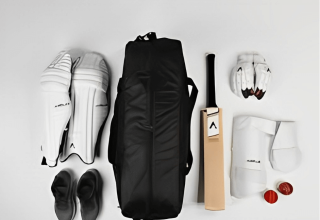In recent years, so-called “cruelty-free” cosmetics, personal care, and household cleaning goods have grown in popularity. But what precisely does “cruelty-free” entail in terms of cosmetics, in these products? And have you ever wondered whether this term is represented in the sports industry too?
Unfortunately, there is no legal or conventional definition of what is and is not permitted to be classified as “cruelty-free.” To various individuals, the term “cruelty-free” can mean different things. As a result, businesses or their goods can use the term “cruelty-free” to mean whatever they wish.
Misleading? — Of course.
Illegal? — Not at all.
Many people are unaware that much of the equipment used in the sports we see on TV, and in stadiums, and that we pay for are animal by-products. And while some may be aware, they are unconcerned. So, it’s just leather, right?
What does cruelty-free mean?
Not only must a business avoid testing its goods on animals to be approved as cruelty-free, but its manufacturers and distributors must also stop testing their components on animals. This guarantees that ethical testing methods were used at all stages of the production and manufacturing processes. Be wary of items that say something along the lines of, “This product has not been tested on animals.” Although it’s possible that the completed product was not tested on animals, there’s no certainty that its ingredients were not. In truth, the majority of animal testing is done on the individual chemicals in a product. Did you know that sports equipment is derived straight from the slaughterhouse? That’s certainly not cruelty-free.
Cruelty-Free in sports is really hard
Vegan sports equipment, on the other hand, can be difficult to get, but we all know that being vegan is about more than just what you eat.
Tennis equipment, like almost everything else in sports, is frequently made with animal products, which is highly unacceptable for the growing number of vegan athletes — take, for example, the latest male and female tennis champions, both of whom are vegetarian athletes.
Sheep wool is used in the bulk of the 360 million tennis balls produced each year, and wool-free alternatives can be difficult to find. Tennis racquet strings produced from cow intestines and leather sports shoes are among the other issues discussed.
Baseball gloves and dance shoes are frequently made of leather, which is an inherently harsh material that is frequently a byproduct of meat and dairy farming.
There are more and more environmental-friendly companies appearing on the market like the biodegradable sporting goods store and they are swiftly expanding their ranges to include vegan and cruelty-free options as more people become aware of the ugly realities of animal husbandry.
The ball is the most important piece of soccer equipment, and it is made entirely of leather. Thankfully, these products’ producers are following up with the changing times and adopting the new trend.
The eco soccer balls, in fact, are vegan and biodegradable. Having in mind the number of balls that are used to play soccer all around the world, this is such a positive change that is going to have a better impact on the environment.
Eco-friendly basketballs are also emerging on the market.
The awareness of the usage of animal products in all sports goods is increasing, starting from tennis to basketball and soccer, to football, rugby, baseball, and dancing, as more people discuss the usage of animal products in everyday life. Although the cruelty-free term is most commonly used in other branches, the sports industry is on a good path as well.











